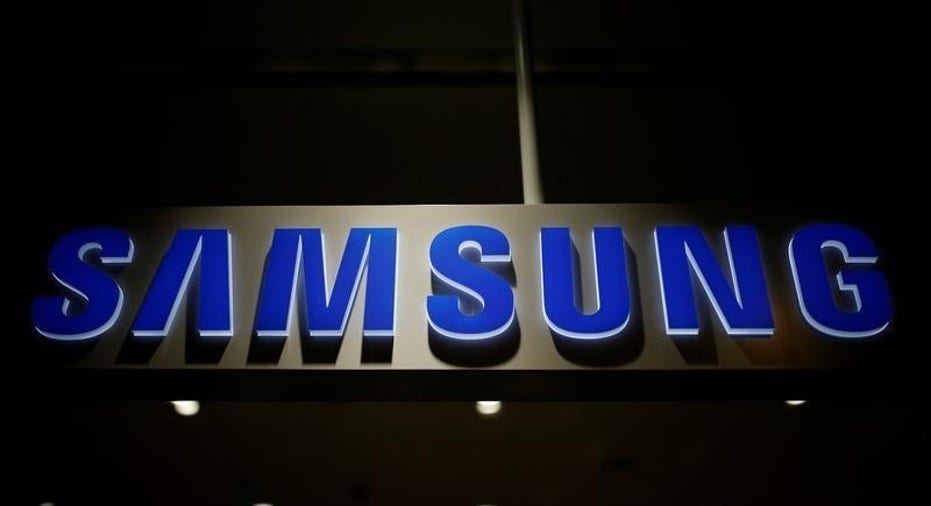Samsung tips record 2Q profit as memory prices surge

Samsung Electronics on Friday said its second-quarter operating profit likely rose 72 percent from a year earlier to a new record, beating analyst estimates, as strong memory chip prices helped widen margins.
The Apple smartphone rival and global memory chip leader said second-quarter operating profit was likely 14 trillion won ($12.11 billion), compared with the 13.1 trillion won average of 19 analyst estimates in a Thomson Reuters poll.
Revenue likely rose 18 percent from a year earlier to 60 trillion won, versus analysts' forecast of 59 trillion won.
Samsung shares are trading at a near-record high of 2.4 million won as of Thursday, as investors look forward to record earnings in 2017 driven by growing demand for chips capable of powering ever more complex servers and smartphones.
On Tuesday, the company said it would invest $18.6 billion to extend its lead in memory chips and next-generation displays.
Samsung did not elaborate on its April-June performance and will disclose detailed results at the end of July. Even so, analysts have tipped its chip division to propel the firm to record overall profit.
The memory chips industry is widely Tech giant Samsung Electronics on Friday estimated a record quarterly operating profit for April-June, propelled by a memory chip boom that analysts say will continue to pad margins for the rest of 2017.
The Apple smartphone rival and global memory chip leader said second-quarter operating profit was likely 14 trillion won ($12.11 billion), compared with the 13.1 trillion won average of 19 analyst estimates in a Thomson Reuters poll.
Revenue likely rose 18 percent from a year earlier to 60 trillion won, also a quarterly record, versus analysts' forecast of 59 trillion won. The South Korean firm did not elaborate and will release detailed earnings in late July.
The robust estimates reinforce expectations for best-ever earnings for Samsung this year, fuelled by a so-called memory chip supercycle. Analysts predict shortages for both DRAM and NAND chips to persist for the rest of this year due to limited supply growth and demand for more computing power on smartphones and servers, padding margins for memory makers.
Another profit driver has also emerged in the form of organic light-emitting diode (OLED) displays. Samsung has a stranglehold on the market for the bendy, next-generation screens which are widely expected to be used for Apple's latest iPhones, due out by October.
"In July DRAM prices will go up again, while from mid-August on, OLED panels go out for Apple," HMC Investment analyst Greg Roh said. He expects Samsung's third-quarter operating profit to exceed 15 trillion won.
Samsung shares were down 0.3 percent in early Friday trade, compared with a 0.2 percent fall for the broader market, as the strong earnings outlook was already priced in. The stock is up more than 30 percent this year and hovering near all-time highs.
While analysts say the memory chip industry will ride a super-cycle for several years on the back of consolidation and new demand from services such as cloud computing and artificial intelligence, its growth rate may slow from the massive jump expected this year.
Samsung said on Tuesday it would invest $18.6 billion to extend its lead in memory chips and next-generation displays, a move likely to ease shareholder fears that major decisions were on the backburner while Vice Chairman Jay Y. Lee fights bribery charges in court.
On the mobile front, sales prospects for the Galaxy Note 8 will be closely watched in the third quarter, after its predecessor was pulled from the market last year due to fire-prone batteries.
Samsung is preparing to unveil the handset in August, a source told Reuters, underscoring the firm's desire to continue the Note brand.
(Reporting by Joyce Lee; Additional reporting and writing by Se Young Lee; Editing by Stephen Coates)



















